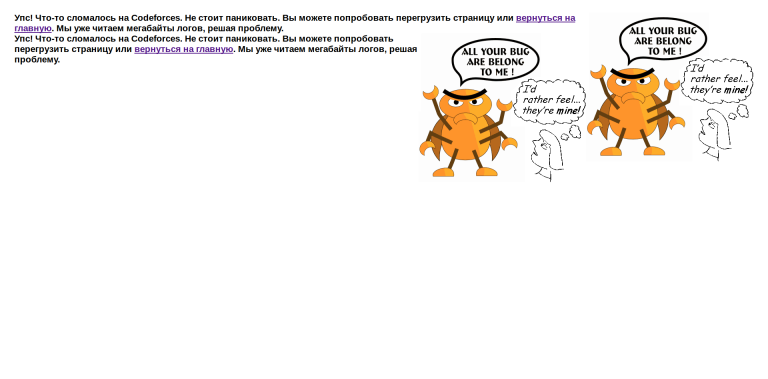Sometimes we see problems where a seemingly naive algorithm — for example simple brute force — is actually the correct solution. Mostly, I mean problems where, due to some clever observations, the complexity of the brute force algorithm is greatly reduced.
For example, in a recent contest we had 1168B - Good Triple. You can notice that any string of length at least 9 contains a "good triple", which means a brute force is sufficient here and runs in O(n).
Or 1028F - Make Symmetrical where you can notice that on any given circle, there are not too many lattice points.
Randomized input is also a good source of these. In 896C - Willem, Chtholly and Seniorious you can observe that after a bit of time, most adjacent elements of the array are equal and write something seemingly naive based on that.
What are some other examples of problems where a stupid brute force is actually the correct solution?












